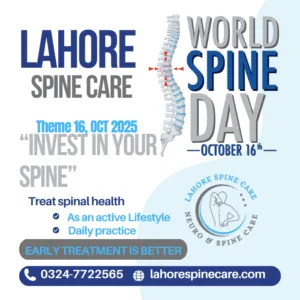
Essential Tips for Maintaining Spine Health During Ramadan Fasting
✅ “Essential Tips for Maintaining Spine Health During Ramadan Fasting” Ramadan is a blessed month

Doctor of Physical Therapy (DPT in the UK) has a role as a key constituent of the preventive, curative, and rehabilitative healthcare sector in the United Kingdom. In this blog, the roles of physiotherapists and the development of physiotherapy as a profession are brought to light together with the discussions of practice domains and the capacity of physiotherapy today.
Table of Contents
ToggleThis includes disorders involving muscles and bones that include sports injuries, arthritis, and postoperative physiotherapy.
Including stroke, multiple sclerosis, Parkinson’s disease, and others, this speciality’s goal is to enhance the ability to move and get through the day.
In this area, physiotherapists work with patients who have difficulties with their breathing and cardiac systems, assist in the rehabilitation of post-surgery patients, teach proper breathing, and help to increase patient endurance.
In children, these physiotherapists deal with developmental issues, birth anomalies, and disabilities, as well as after-injury treatments.
The main concerns of this speciality include pregnancy-related low back and pelvic pain, pelvic dysfunction, and postpartum rehabilitation.
Physiotherapists are found in various settings, including
Hospitals and Clinics: Serving as inpatient and outpatient services.
Community Health Services: Realisation of home visits and community prenatal rehabilitation services.
Private Practices: Providing specific procedures for the musculoskeletal system disorders.
Sports Teams and Organisations: It is the practice of working with athletes to ensure they reduce their chances of getting injuries or easily recover if they are injured.
Research and Academia: To aid the expansion of physiotherapy in regard to research and education.
Thus, the emphasis on professional development as a key concept.
The field of physiotherapy is dynamic, growing with research, constant development in techniques, and technologies. In their careers, physiotherapists need to ensure they continue practising because the profession requires updating one’s knowledge base. Opportunities for continuing education include:
Such events enable physiotherapists to be updated by the professionals as well as share the latest developments within the treatment.
Players must be able to choose with whom, when, and how they learn about new techniques, best practices, and new technologies.
Support from friends and superiors, as well as the ability to access information concerning the subject.
However physiotherapy is developing over the years, many physiotherapists prefer to work in selected fields. Specialisation is better in the sense that one can easily dedicate his/her energy to a particular area and improve his/her career path. Basic specialities may have to be supplemented with training, coursework experience, and sometimes examinations.
It is now clear that mentorship is an important part of a career and training. Senior physiotherapists can mentor junior physiotherapists, enabling them to learn from aspects of clinical practice, decision-makers, and client treatment. Supervision also safeguards high standards of care besides promoting the process of learning.
Opportunities for growth in demand for physiotherapy services include the following: there will be increased demand for physiotherapist services because of the ageing population, an increase in chronic diseases, and a shift towards prevention. This growth presents numerous opportunities for physiotherapists to expand their roles, including
At some level, physiotherapists are part of tackling health promotion and disease prevention.
As a member of the healthcare team, giving care in collaboration with other healthcare givers.
How to leverage the telecaring technology, such as telehealth, wearable devices, and mobile applications, in managing patients’ experiences and improving their status?
This paper aims to present the current place and tasks of physiotherapists in Great Britain and their substantial changes in recent decades. Like in most other careers, the need for physiotherapists may be dynamic. Physiotherapists must engage in continuous professional development to build on the skills they possess and the challenges they face. In maintaining and enhancing the learning and communicative culture within the study and practice of physiotherapy, these physiotherapists can remain political in actively helping persons and populations within the UK.

✅ “Essential Tips for Maintaining Spine Health During Ramadan Fasting” Ramadan is a blessed month

Turmeric, also known as the “golden spice”, has been a part of traditional medicine and

The Best Spine Treatment Services of DHA Phase 6, Lahore. Most of us are used

On the 16th of October, the world unites in order to celebrate World Spine Day,

The Spencer Technique is one of many options of treatments that physical therapists and osteopathic

How to choose the right shoe for spine health is more important for spine health
LAHORE SPINE CARE is proudly powered by WordPress